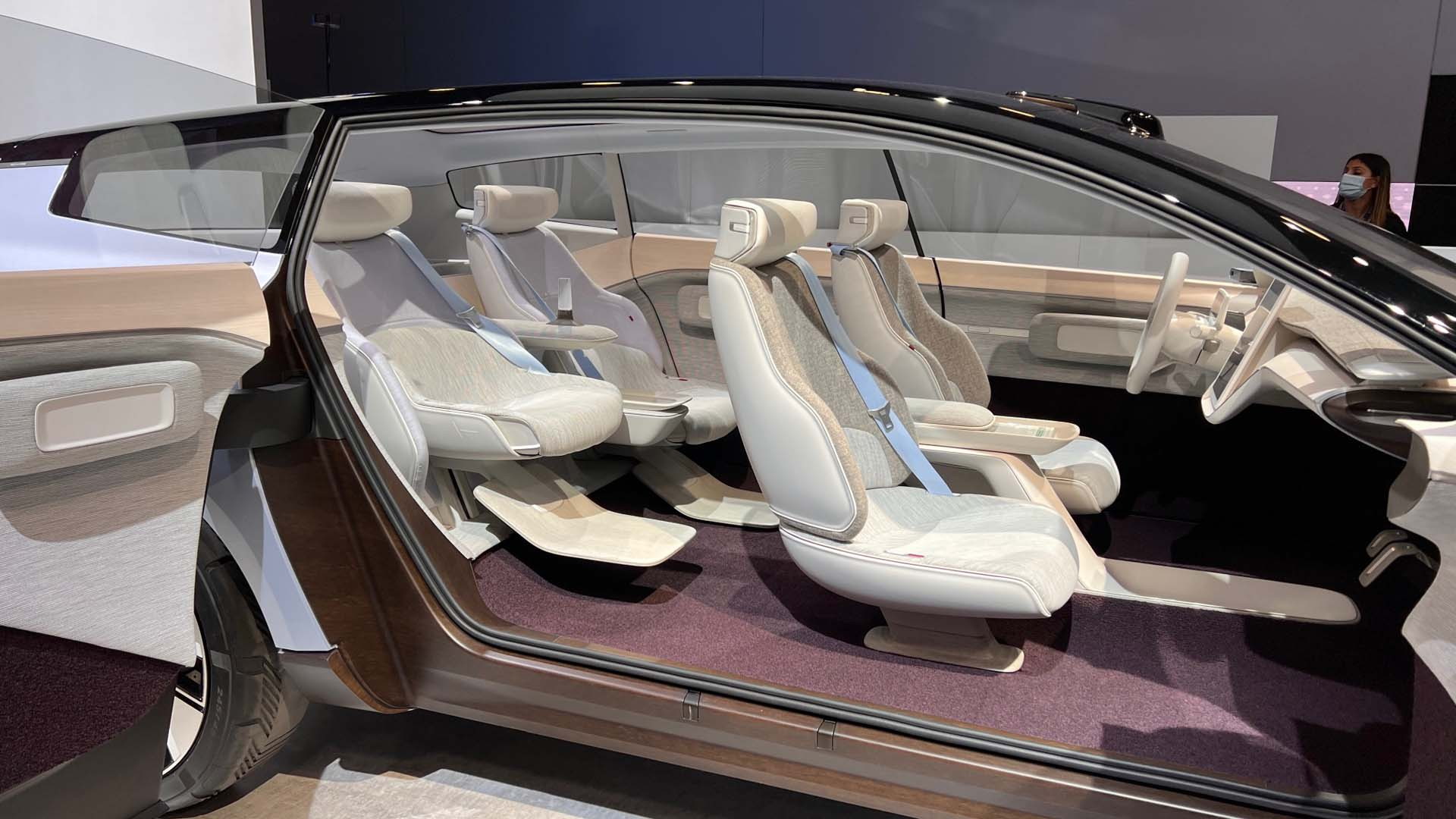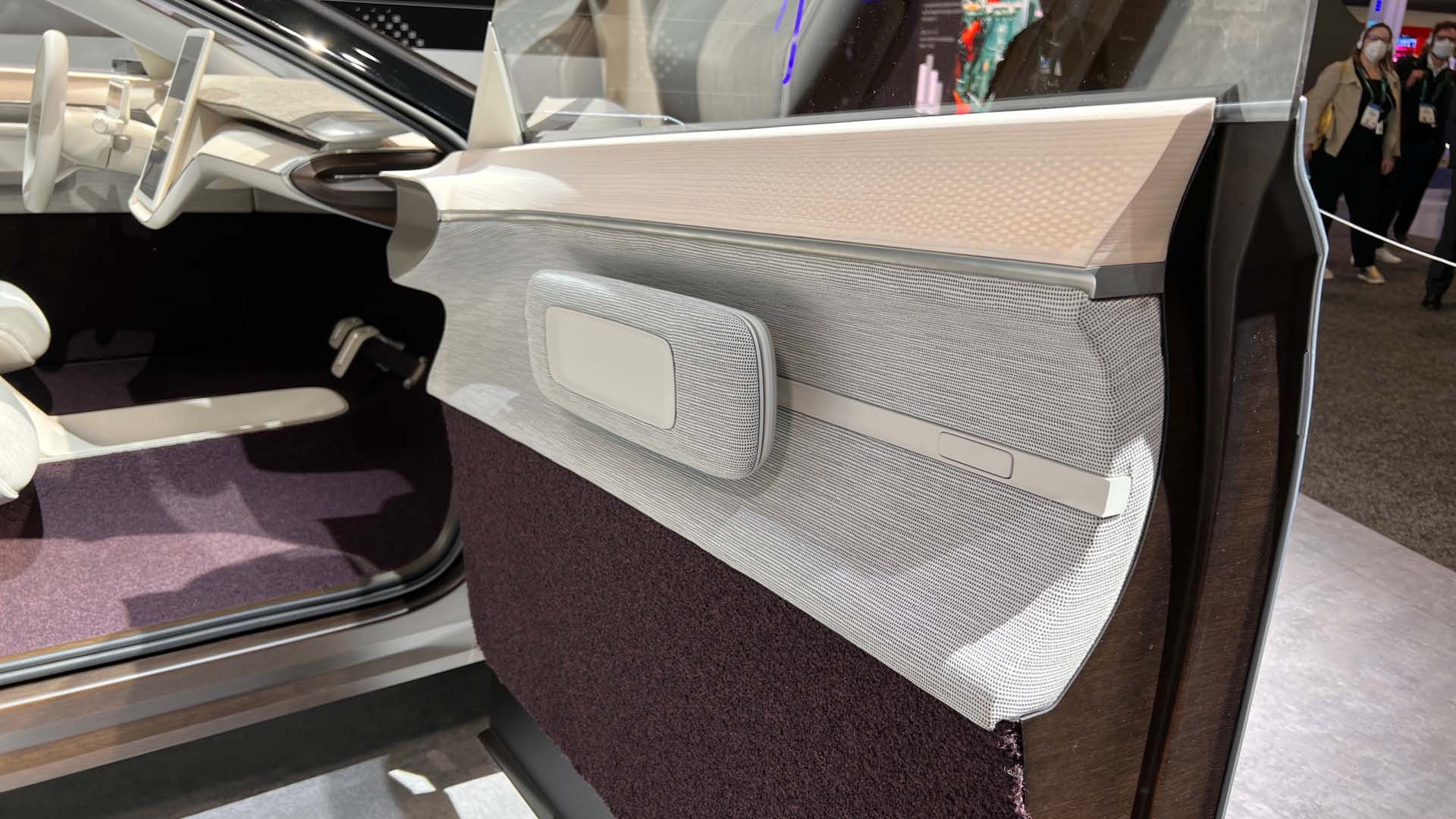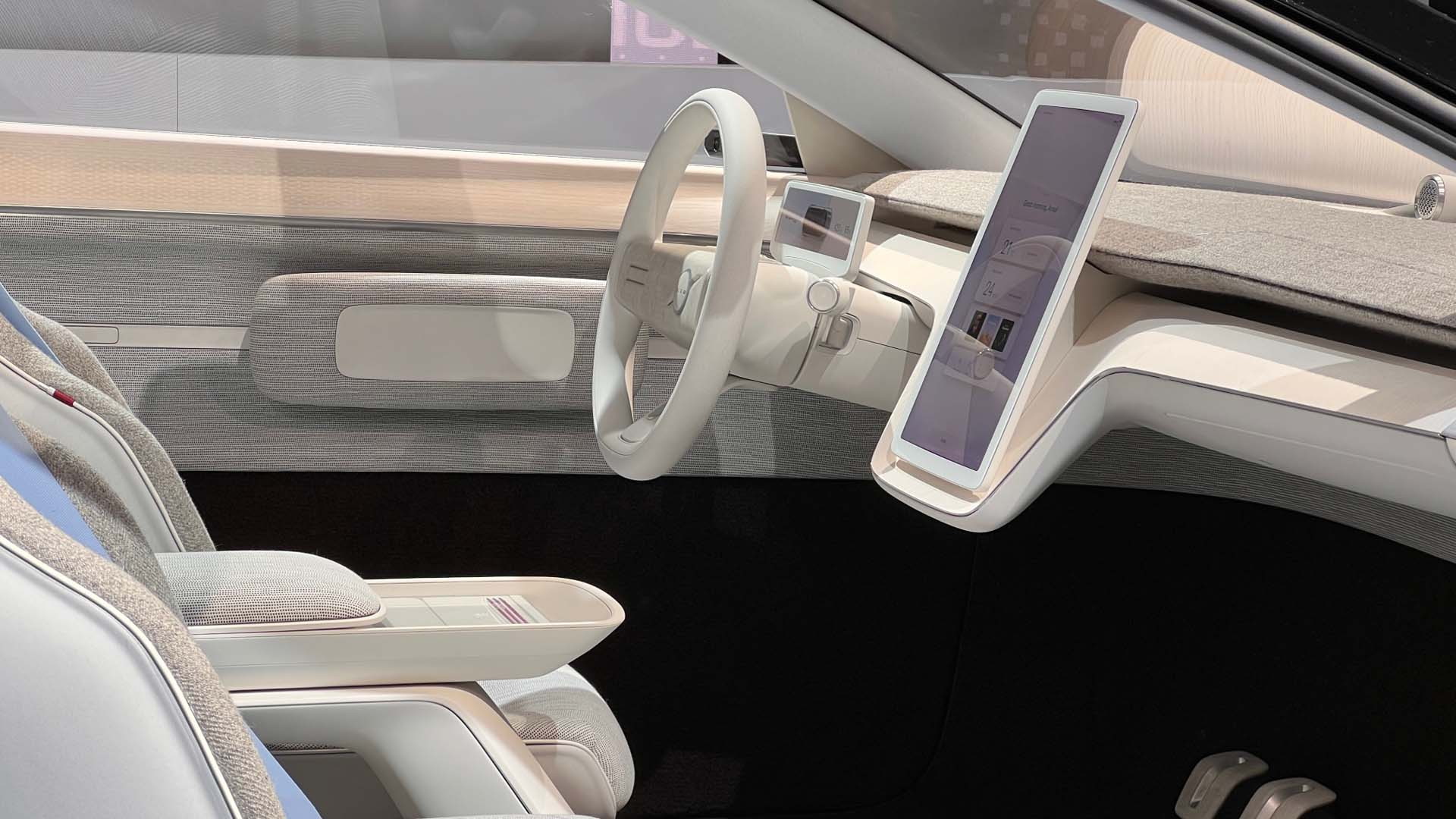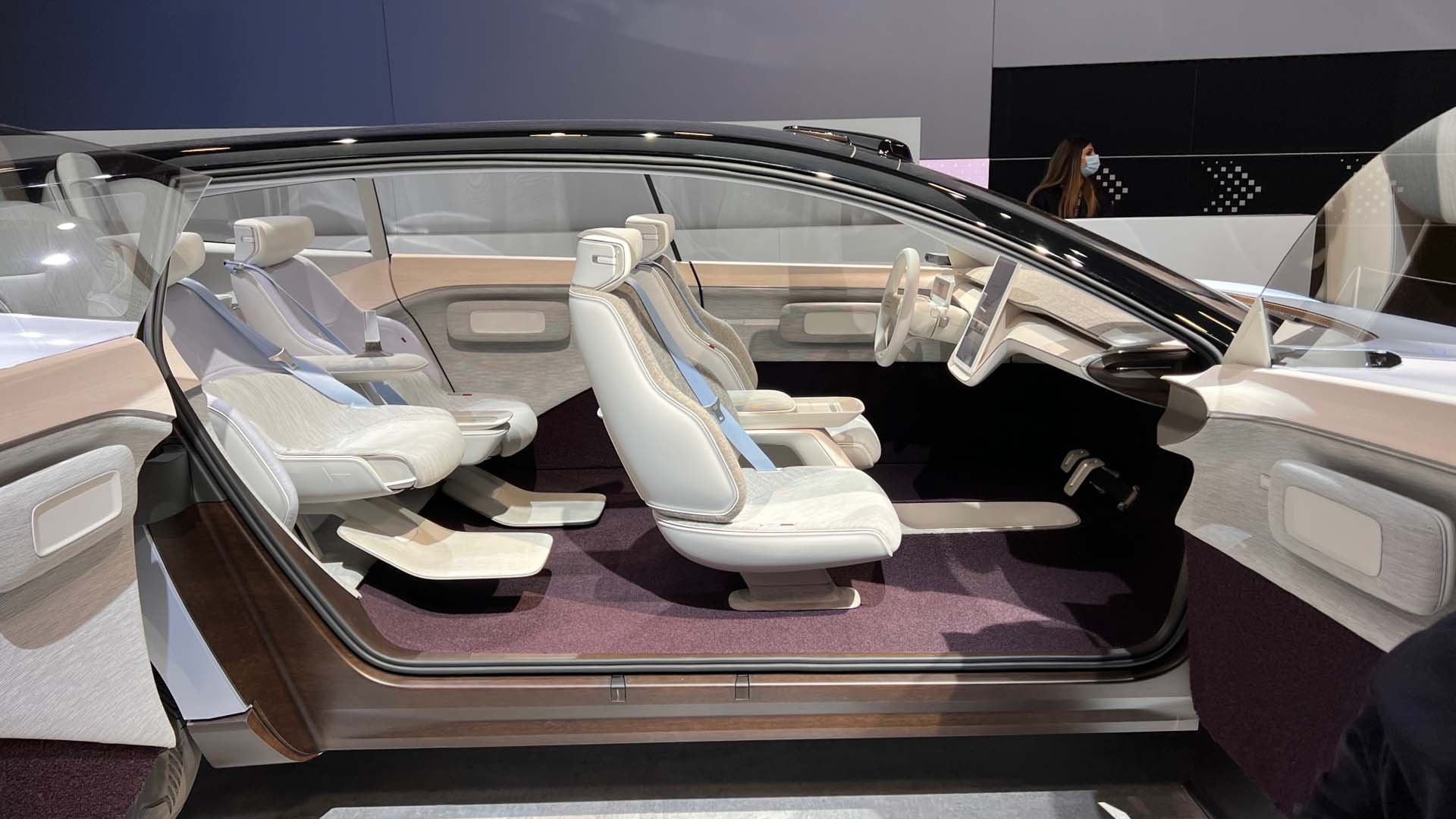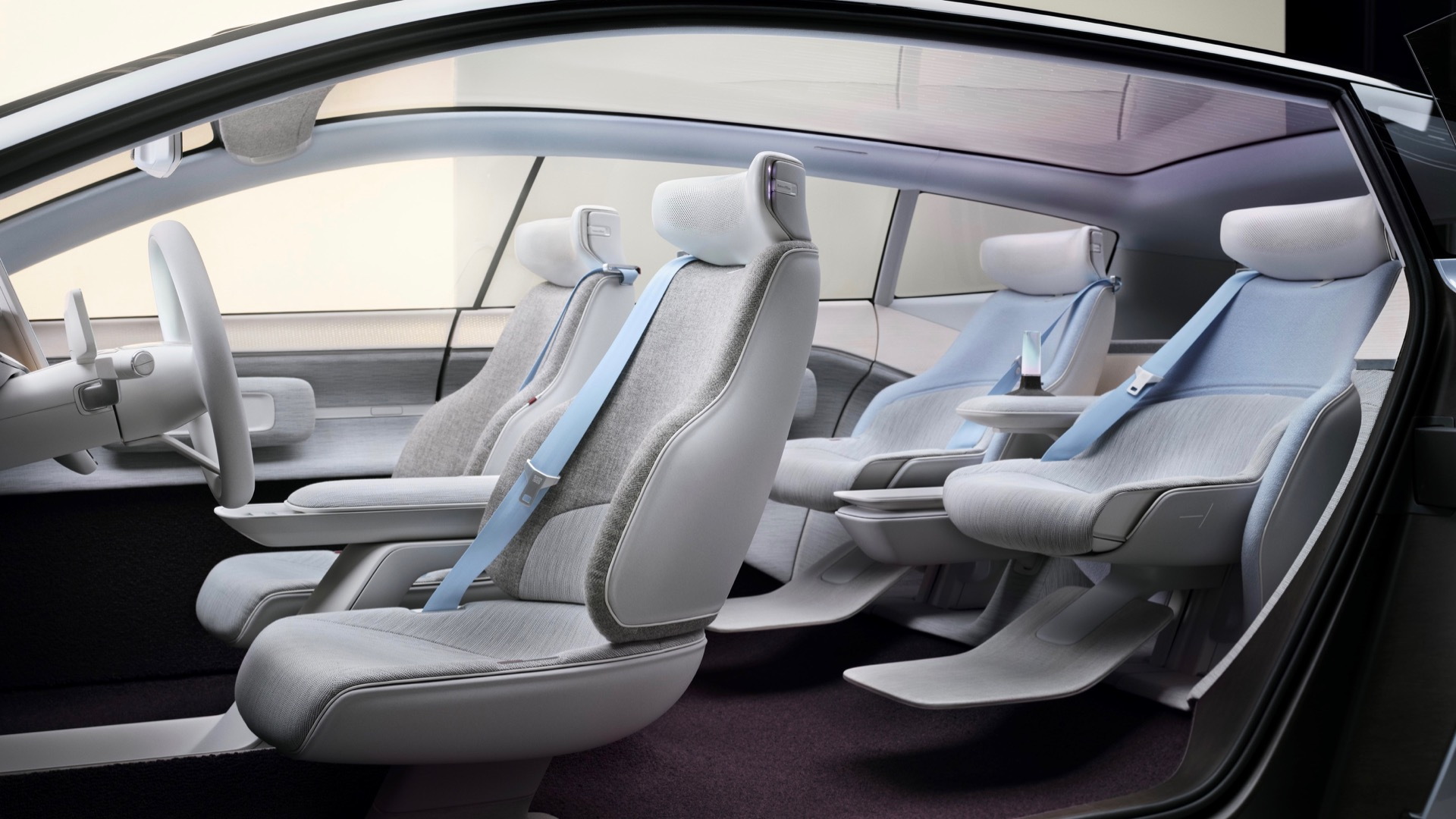Volvo on Wednesday provided more detail on its Concept Recharge, specifically the concept's interior which uses sustainable materials to further lower carbon emissions.
Unveiled in June, the Concept Recharge is a high-riding electric wagon that previews the design direction of future Volvo EVs. That includes looking beyond the electric powertrain for other areas where the vehicle's environmental impact can be reduced, Volvo said.
By using sustainable materials, decarbonizing the supply chain, and adopting greener production methods, the automaker believes it can reduce the lifecycle carbon-dioxide (CO2) emissions of future vehicles by 80% compared to a 2018 Volvo XC60.

Volvo Concept Recharge
Instead of the typical leather upholstery, the interior features Swedish wool for the seat backrests, instrument panel top, and lower doors, as well as carpeting. The seat cushions and other door surfaces are covered in Tencel, a textile made from plant-based cellulose. This allows for a reduction in plastics, Volvo said.
The seat backs, head restraints, and part of the steering wheel are covered in what Volvo claims is a newly developed material. Made from natural and recycled materials sourced sustainably from forests in Sweden and Finland, it has a CO2 footprint 74% lower than leather, Volvo claims.
Other interior components are made from a flax composite to further reduce plastic use. This material was also used for the front and rear bumpers and side moldings, again replacing plastic.
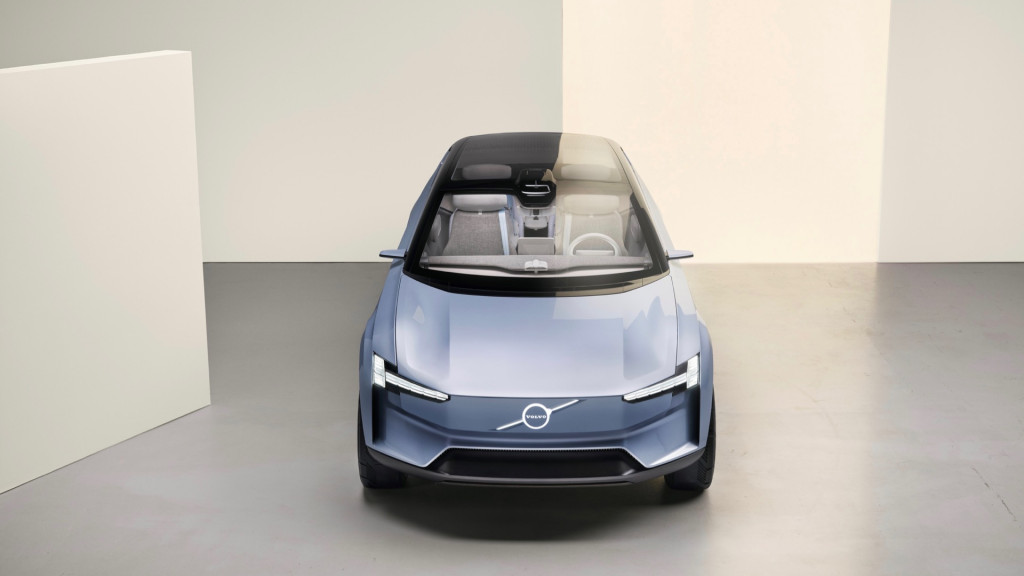
Volvo Concept Recharge
The Concept Recharge also features special Pirelli tires. Volvo claims they're made from materials that are 94% free of fossil fuels. The materials include natural rubber, bio-silica, rayon, and bio-resin.
The concept itself has a dedicated EV architecture that eliminates the engine compartment, and incorporates a flat battery pack mounted in the floor. It also has integrated lidar sensors for advanced driver-assist tech. Volvo plans to start adding lidar to production cars next year beginning with the next-generation XC90, which will also get an electric variant.
Volvo currently targets sales of EVs only by 2030, and to have its enter operations climate-neutral by 2040.
